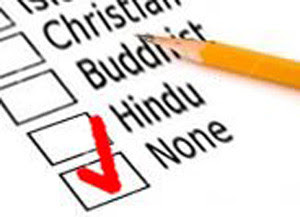“Everyone needs a home—where families are safe
and secure, where their basic needs are met, where they can come and go freely,
and where they can imagine a future.”
That’s the way a new campaign from Mennonite Central Committee on Palestine and Israel begins.
“But that is not the reality for Palestinians,” it
goes on to say.
Living “under Israeli occupation, Palestinians
regularly experience demolition of their homes, confiscation of their land,
restrictions to their movement because of checkpoints, walls, and permit
systems,” MCC states.
Thinking about MCC’s new campaign, some may wonder:
With all the huge needs in the world today, why focus on this issue?
On the MCC Ottawa Office blog, Esther Epp-Tiessen,
the agency’s public engagement coordinator, offered the following reasons.
“We are responding
because of the urgent plea of our partners,” she wrote, “especially Palestinian
Christian partners.”
These partners, she added, have for years been
urging MCC to take “a bolder stance in calling for an end to occupation,
oppression and injustice.”
Another reason is “because of the increasingly
desperate situation of Palestinians under Israeli occupation.”
According to Epp-Tiessen, “the theft of land and
the building of illegal settlements for Israeli Jews in the occupied West Bank
continues apace,” and the “demolition of Palestinian homes, schools and
orchards goes on with impunity.”
Palestinians who resist “are increasingly bullied,
silenced, imprisoned.”
They are also launching the campaign “because we
care also about Israeli Jews,” who are also “harmed by the words, walls, and
weapons that divide them from Palestinians.
MCC’s 68-year history in the region is also important, she said.
“Our history and
continuous presence . . . has given us insights into the ongoing conflict, as
well as a special burden to help in supporting a resolution to the conflict.”
Another reason is “because of our faith.”
“Our commitment to Jesus compels us to stand with
the oppressed, lovingly speak truth to power, and actively seek a just peace in
the land where Jesus walked,” she shared.
Through the campaign, MCC is asking people to sign
a petition that urges the Canadian government to “prioritize the human
rights of Palestinian children and hold Israeli authorities accountable for
widespread and systematic ill-treatment and torture of Palestinian child
detainees.”
MCC’s campaign does not ask Canadians to support
the Boycott, Divestment and Sanctions movement, or BDS, which calls for boycotts
of products made in Israel; for organizations to pull investments out of
Israeli companies; and for government sanctions against Israel.
After reading Epp-Tiessen’s post, I called Rick
Cober Baumann, MCC Canada’s new Executive Director. I had a different question
for him.
Considering recent flare-ups of anti-Semitism in
the U.S., and even here in Winnipeg, was he worried that the campaign might add
to the anxiety of Canadian Jews?
He acknowledges this is a concern. “We want to make it absolutely clear
that we don’t want to promote antagonism against Jews, in Canada or Israel,” he
says.
That’s why the campaign affirms the fears of Israelis, who also “live with ongoing fear and
trauma . . . they too long for safety and security.”
MCC “clearly recognizes the insecurity and lack of safety felt by
Israelis,” he says, noting that in the past MCC had not fully taken this into
account.
“This time we are making more of an intentional effort.”
MCC also wants to be “more responsive to the Jewish community,” in
Canada, he says. This includes looking for ways to dialogue with Canadian Jews
about this issue. They also want to dialogue with members of that community who
also want to find a “non-violent and just peace in Palestine.”
Thinking about the campaign, Cober-Baumann recognizes that “not everyone
will be happy” with it. Yet he still believes it’s important.
“Our advocacy effort is based on our experience,” he said. “It shows us
there is an occupation, and that a deep price is being paid for that occupation
by the Palestinians. It grows out of the reality on the ground.”
Through a Cry for Home, he hopes that MCC’s supporters, and other
Canadians, will come “to a deeper understanding of the situation.”
What do Winnipeg Jews think about MCC’s campaign? That will be the
subject of a future column.
From the Oct. 28 Winnipeg Free Press.




